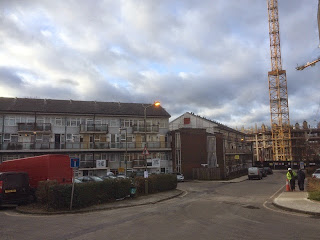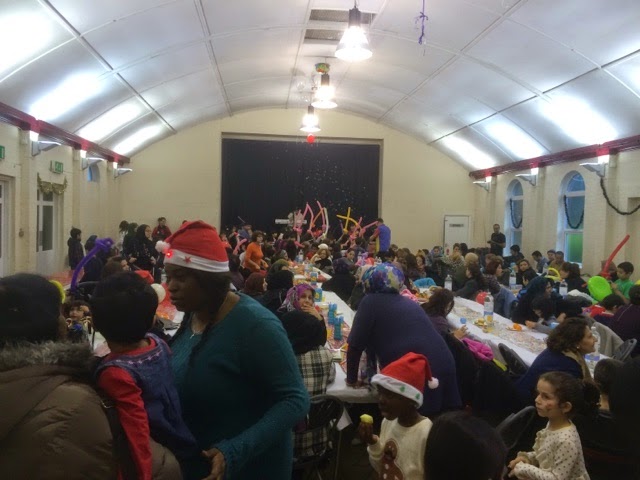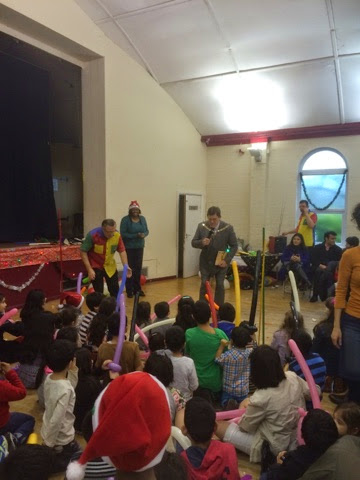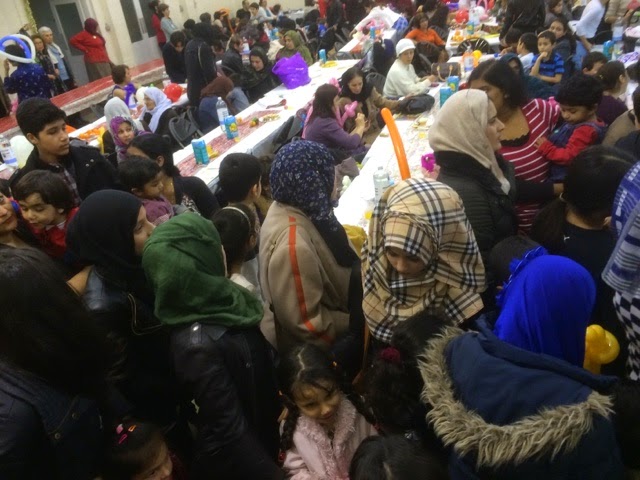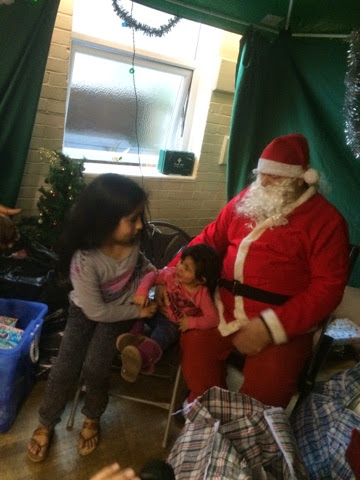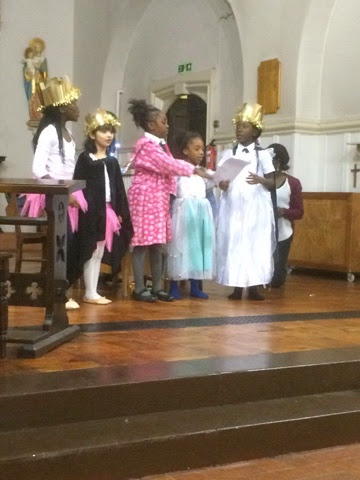The gospel writer John is hardly the most romantic or sentimental of the
gospel writers. His vocabulary is technical and his approach seems more the
work of a theologian than an eyewitness telling a story that has a beginning
middle and end.
If you go to John’s gospel
for shepherds or angel choruses, or kings following bright stars, friendly
beasts, harsh innkeepers, or strange dreams, you have gone to the wrong gospel.
Jesus walks onto the stage of history full grown when John first takes
any interest in his life. And John writes like an intellectual, like a
philosopher... in circles. In the beginning was the Word, and the Word was
with God, and the Word was God, And immediately we know
that this is not a word like supercalifragilisticexpialidocious. It is a Word
that has theological meaning.
Of course the Word is translated from the original Greek Logos, which is more than just a word,
it is more like a concept, a thought that wants to be uttered rather than a
word that must be defined.
So as January begins with the Christmas decorations still around us, our
minds finally clearing from the excess of New years parties we have a moment to
pause and reflect on this first Sunday of the New Year, before we take up the
story anew next Sunday with the beginning of Epiphany.
John’s prologue, the first eighteen or so verses of the gospel, take us
back to the beginning of all time. In the beginning, John begins, and if
it sounds a little more like Genesis than John, it’s supposed to. John wants us
to think about the beginning of everything, when the earth was formless and
void. It was at that time that the idea, the Word, was already in God’s mind.
God knew from the beginning that a Word would need to be said, a Word would
need to be born.
In contrast to St Luke the birth story did not begin with the
annunciation. For St John the genealogy of Matthew and Luke is trumped by tracing the lineage of Jesus not with Adam
or Abraham but with God before time began. John states that from the beginning
of time, God meant the Word to be. He wants to know from whence all things
come. And he gives us a mystery to ponder - the fact that even though the Word
was the first thought God ever had, the reception of the Word, the child born
of Mary, by God’s people was the last
thing of theirs.
“He was in the world, and the
world came into being through him, yet the world did not know him. He came to
what was his own,” John goes on, “and his own people did not accept him.”
His own people may have missed the point, but what excuse do we
have?
I am struck by John’s words which echo into this new year of our Lord
two thousand and fifteen.
Have we really not seen him, not known him?
He was in the world, John says, and the world did not know him. If not,
then what is this annual exercise we have just been through?
We have transformed our city with lights and placed candles in our
windows. We’ve hauled living trees into our homes and decorated them with
strings of bulbs and bows and tinsel. We’ve spent Billions of pounds in our
shops.
But maybe “knowing him” should not be confused with the gaudy display
and orgy of spending that Christmas has become for so many, pretty as it may
be, and relief to the longest nights of the year that it is. Because if all
there was to the Word’s coming into the world were pretty lights and tightly
wrapped packages, then the only people who gain are those in the business of retail and advertising, when what
Christmas holds out is hope and life for the whole of creation.
We are always challenged to look beneath the surface, to look deeper in
to the Christmas story for meaning as Anghard reminded us last Sunday
when she preached taking us beyond the perfect night with a nuclear family of
Mary and Joseph and the baby Jesus to something a little more gritty and
uncomfortable, even painful but certainly more inclusive and hopeful.
It is for St John to point us to
this in his beautiful words that form the first verses of his gospel, the
prologue. For here is the real heart of what we have been preparing to celebrate
through the weeks preceding Christmas, the coming of One who would be for us
light and hope, joy and strength, the Word become flesh and dwelling among us
full of grace and truth. And in the place of the inhospitable Inn keeper of
Luke’s gospel John states , “He was in
the world, yet the world did not know him.”
As we strive to make our New Years resolutions in a world that is still
divided and torn apart by ideology, wealth and religious values that deny our
common humanity let us hear the words of hope that St John gives us this
morning as we look out to the year beginning in the darkness of our making as
well as that of this winter season and pledge ourselves to the hope that we
celebrate at Christmas even though “he was in the world, and the world did not
know him.”
It’s John’s clear if somewhat minimalist message, without angels or shepherds, stars,
strange dreams or magi, nevertheless a message that makes all the difference once you grasp
its implications, that in the beginning was the Word and the Word was with God,
and the Word was God. And the Word was made flesh and dwelt among us, and we
have seen his glory, glory as of a parent for an only child, full of grace and
truth.
If there is any hope for this world I am not sure that it lies in images
and messages that we are constantly bombarded with but is does lie in the pages
of Scripture that we turn to every day of our lives and read and meditate upon.
In a world that does not know the one sent to be its light and life; as
we make our New Year resolutions let us look for the evidence that God is
indeed with us. Let us commit ourselves to look for those places where there is kindness expressed,
and comfort offered, and prayers are said, and people are encouraged, and the
dying are soothed, and the ill are not alone.
This is how God is made known in the world, in this and every season.
When the Word is expressed in flesh and dwells among us, full of grace and
truth.


